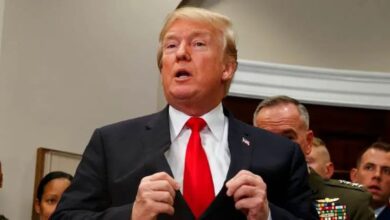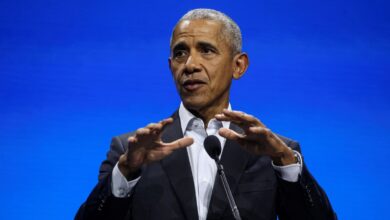After United States Warns North Korea ‘Military Action’ On Table, Pyongyang Tests Missile

UNITED NATIONS: Hours after US Secretary of State Rex Tillerson issued a grim warning on Friday that “military action” should be considered an option to deter North Korea’s nuclear programme, Pyongyang responded by defiantly testing a ballistic missile.
The missile test was, however, a failure and it blew up within North Korean territory, according to US and South Korean military.
Pyongyang’s defiance was directed not only at the US, but also at Russia and its patron, China.
While Moscow and Beijing opposed any talk of force at a high-level Foreign Mininsters’ meeting of the Security Council, they also condemned North Korea’s nuclear build-up and demanded that it denuclearise.
United States President Donald Trump pointedly tweeted: “North Korea disrespected the wishes of China and its highly respected President when it launched, though unsuccessfully, a missile today. Bad!”
In a day of hectic diplomatic activities at the United Nations, Mr Tillerson tried to rally world opinion for stronger economic and diplomatic sanctions, reminding other members of the Council that they “are within striking distance of North Korean missiles”.
He said sanctions must be backed by a “willingness to counteract North Korean aggression with military action if necessary”.
China, Russia and Secretary-General Antonio Guterres countered with warnings about the risk of military escalation.
Delivering what was probably the starkest apocalyptic warning heard at the UN in recent times, Mr Tillerson told the Security Council, “The threat of a North Korean nuclear attack on Seoul, or Tokyo, is real.”
“And it is likely only a matter of time before North Korea develops the capability to strike the US mainland,” he added. “Indeed, North Korea has repeatedly claimed it plans to conduct such a strike.”
Mr Guterres, who spoke before Mr Tillerson, said, “I am alarmed by the risk of a military escalation in the region, including by miscalculation or misunderstanding.”
Russia’s Deputy Foreign Minister Gennady Gatilov also said that a misinterpretation or a bad move could have catastrophic consequences and declared that the option of force was completely unacceptable.
But Mr Tillerson said, “Failing to act now on the most pressing security issue in the world may bring catastrophic consequences.” He added, “We have said this before and it bears repeating: the policy of strategic patience is over.”
Mr Tillerson threatened sanctions against countries, organisations and people supporting North Korea’s illegal activities in defiance of Security Council sanctions. But there was no mention of Pakistan, whose former Head of Nuclear Weapons Programme, Qadeer Khan, had transferred technology to North Korea.
In calling for actions against Pyongyang, Mr Tillerson called out Beijing, which economically props up the regime of Kim Jong-un.
“China accounting for 90 per cent of North Korean trade; China alone has economic leverage over Pyongyang that is unique, and its role is therefore particularly important,” he said.
But China’s Foreign Minister Wang Yi countered that it was not solely his country’s responsibility to contain North Korea. He spread blame for the developments there, virtually accusing Washington of provoking Pyongyang by deploying an anti-missile defence in South Korea.
That action, he said, also undermined China’s security and created mistrust.
In a conciliatory gesture to Kim Jong-un, Mr Tillerson assured the 33-year-old dynastic dictator that “our goal is not regime change”.
He recalled the $1.5 billion that the US had given North Korea in earlier phases of interaction since 1995 and held out promise of resumption of assistance and cooperation if North Korea gave up its nuclear weapons.






